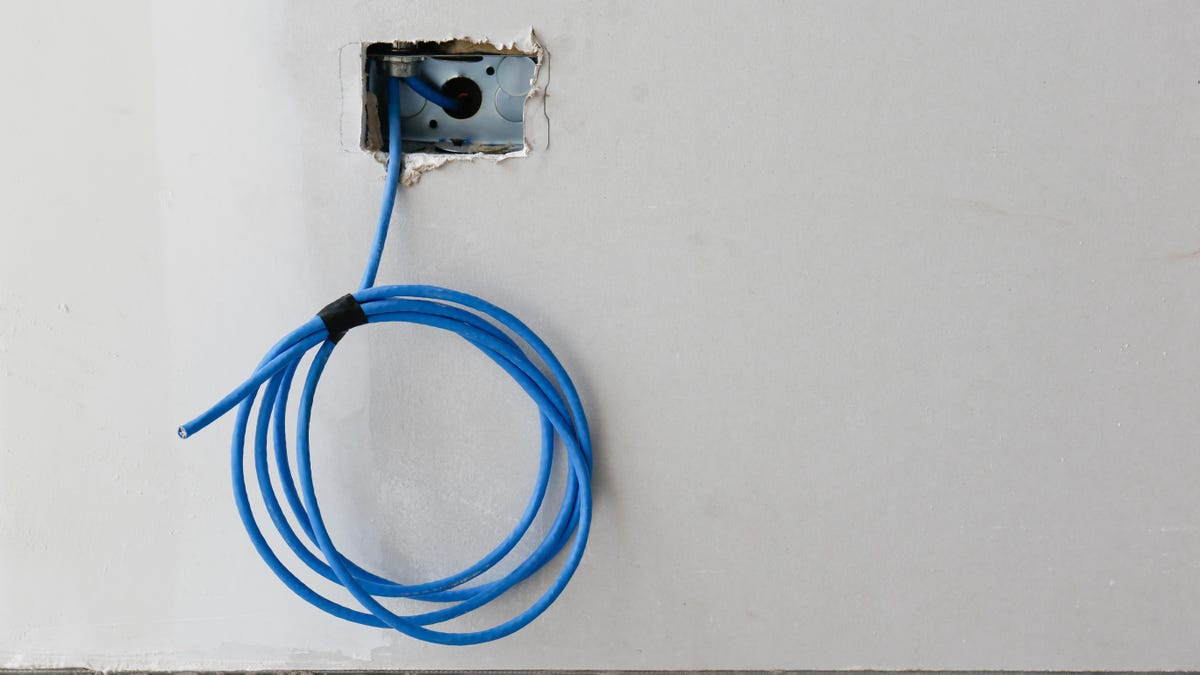We’re living in an increasingly wireless world, as everything from the power that charges your devices to the audio that pops into your earbuds is transmitted wirelessly—including arguably the most precious resource of the modern era, the internet. There are so many advantages to accessing the internet via wifi that the idea of wiring your house up with ethernet cables (which date back to 1973, and thus seem Paleolithic compared with WiFi 7) seems ridiculous. But it isn’t—and we’re so focused on the advantages of a wireless world, we overlook the disadvantages.
Tearing open your walls to run ethernet isn’t exactly necessary; for most of us, wifi is good enough for whatever we’re doing online most of the time. But if you have the opportunity to run some ethernet through your walls—because they’re open for a house renovation, or because you’re having some other wiring work done—you should really consider wiring the place for ethernet, because a wired internet experience still really is better than a wireless one.
Ethernet is faster
First—and most importantly—ethernet is always faster than wifi. Studies show that wifi is less than half as fast as an ethernet connection, with a typical wifi network in a home managing just 42% of the speeds achieved with a hardwired connection. That’s due to simple physics: Cat 6A cables are rated to transfer data at 10 gigabits per second (Gbps) in a consistent, steady manner, whereas radio-base WiFi 6E only has a “theoretical” maximum speed of 9.6 Gbps and a practical throughput of much less.
That’s going to change somewhat as WiFi 7 rolls out. The newest version of the wifi standard has an astounding theoretical speed maximum of 46 Gbps. But those are not the speeds you’ll see in reality, once you factor in interference and other devices on the network. Still WiFi 7 will definitely give ethernet a run for its money in terms of speeds delivered to your devices. At least, once it’s actually in your home.
Unlike wifi, internet delivered via ethernet won’t degrade with distance. As you move away from your router, your wifi speeds will slow down, but you can run 100 feet of ethernet without any noticeable loss. Ethernet also offers low latency (a measurement of the delay between an action and a result via an internet connection) when compared to WiFi 6E, which is crucial for applications like gaming. Again, WiFi 7 promises ethernet-level latency, but your mileage may vary. For the foreseeable future, plugging an ethernet cable into your televisions, gaming systems, and other devices will guarantee the highest possible speeds.
Ethernet offers more reliable coverage
Even if WiFi 7 matches ethernet’s speeds, you’ll still probably experience the terror of wifi dead zones. Wifi is a radio signal, and there are many, many materials that inhibit those signals. That’s why your speeds drop to painfully slow levels every time you walk into your bedroom, or why your finished basement might as well be located in the wilderness as far as your wifi signals are concerned. You can solve this problem somewhat with extenders, MESH networks, or secondary routers—or you can wire up your house and never experience a dead zone again.
Ethernet provides better security
When it comes to security, wifi is always at a disadvantage for one simple reason: The signal is in the air. Yes, it can be encrypted, but it’s still accessible, and thus much easier for folks to compromise that encryption and gain access to your data. The WPA3 encryption standard introduced in 2018 is pretty strong in terms of security, but it’s not perfect and has vulnerabilities like any security standard.
Because it’s a physical connection and not through the air, ethernet is much more difficult for someone to access in the first place. Without physical access to your network, a bad actor won’t be able to even try to gain access to your data,
The day may come when WiFi 7 (or an even more advanced version of the protocol) makes ethernet entirely obsolete—but that day is not today. Wifi may be good enough for most of your needs, but if you have the opportunity to run ethernet through the house, it’s still a good idea to do so.

